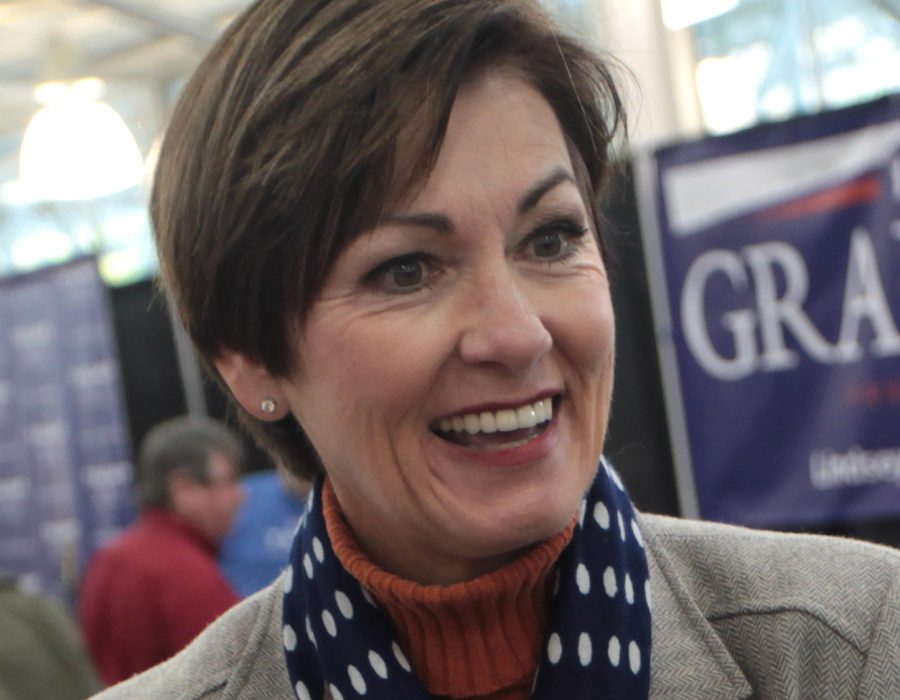Reynolds signs mental health bills
Gov. Reynolds recently signed two bills into law that aim to build a variety of mental health programs across the state.
Apr 23, 2018
Governor Kim Reynolds (R) recently signed two bills into law designed to address Iowa’s mental health system.
The state’s mental health system is often regarded as a major problem by Iowa residents; a Des Moines Register poll released in February found that 73 percent of Iowans viewed the mental health system as either in “crisis” or as a “big problem.”
The legislation comes at a time of heightened activism regarding mental health on Iowa’s college campuses, including UNI. Mental health at UNI has been a prominent issue in recent years, and was a central topic during the Northern Iowa Student Government elections earlier this spring.
Reynolds described the signing of the two bills, House File 2456 and Senate File 2113, as a “significant day for mental health in Iowa.”
Reynolds hosted a signing ceremony in the Capitol building in Des Moines, with state legislators, family and friends of suicide victims and mental-health advocates gathered around her in the Capitol rotunda and balcony.
Prior to the gubernatorial signing, each of the bills passed the Iowa House and Iowa Senate unanimously in a display of bipartisan cooperation.
House File 2456 is a 16-page bill which addresses a broad range of regulatory territory.
Priorities listed in the bill include: six access centers designed for immediate, short-term treatment of individuals going through a mental health crisis; 22 assertive community treatment teams designed to provide treatment and support to individuals with mental illness in their homes; comprehensive crisis services which include a 24-hour hotline and a mobile response team; intensive residential service homes designed for individuals with severe, long-term mental illness and disclosure of mental health information by mental health professionals to law enforcement.
Senate File 2113 is a two-page bill which focuses on mental health training and protocols for Iowa teachers.
The bill compels Iowa school districts to provide a minimum of one hour of training annually to Iowa school employees who consistently work with students in identifying and addressing mental health problems, with a focus on suicide prevention.
Though the bills enjoyed unanimous bipartisan support, some Democratic lawmakers expressed concern regarding whether the programs within the bills, predominantly House File 2456, will receive adequate funding.
Iowa’s budget has experienced consequential revenue shortfalls in recent years, resulting in budget cuts, the brunt of which has been felt in Iowa’s public universities, including UNI. The planned tax cut by Iowa’s Republican-majority in the legislature will likely further reduce state revenue.
State representative Bob Kressig (D) wrote on his Facebook page, “Thankful the legislature worked on improving mental health services in Iowa. Hope funding is a priority.”
State representative Walt Rogers (R) wrote on his weekly legislative newsletter, “Both of these bills will make it easier for Iowans to access mental health services and get the treatment they need.”
Reynolds also announced her intention to sign an executive order regarding a platform to begin the development of a mental health service system geared towards Iowa’s children.









